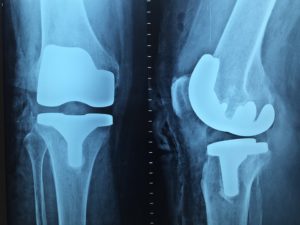When we talk about caring for our children, the topic seems endless. There are so many things to consider and do that sometimes it feels like we’ll never have complete control over everything that surrounds them. This may be true to some extent, but it doesn’t mean that our children are in danger just because we can’t think about every aspect of their protection all the time.
One of the most common doubts among mothers and fathers is about the effects of X-ray radiation in babies and children. After all, to what extent can it benefit or harm? Are there alternatives? To better understand this, we must first understand what X-ray is.
How Does X-Ray Work?
The test called radiography emits a special type of light, the so-called X-rays, which end up being absorbed by the part of the body that is exposed to this light and are captured on a special type of film, which reveals the area where these rays were absorbed1.
X-ray exams are commonly used to analyze fractures in various parts of the body, since bones are easily captured and it is possible to precisely see if there is any abnormality. In some organs such as the lungs, for example, it is also possible to identify if there is any abnormality or disease through this type of exam.
There are some variations of X-ray, which was discovered by the German physicist Wilhelm Conrad Röntgen at the beginning of the last century. However, the average time to take an X-ray today is 10 to 15 minutes, which is quite fast, considering its efficiency and also compared to other tests like CT scans, for example.
Depending on where the exam is performed, it is recommended that the patient remove clothing or even accessories such as earrings and piercings, as some types of buttons and objects can block the rays and prevent the image from being taken.
Effects of X-Ray
Many people don’t know, but we are exposed to radiation every day—of course, at a much lower level than from an X-ray machine—but it’s important for us to know this information so we can dismiss the myth that we are putting something poisonous or cancerous into our bodies.
This holds true for both adults and for X-ray radiation in babies and children2. Especially with today’s technological advances, the amount of radiation that a person receives during this type of exam is very small, making it almost impossible for a child to have any problem because of the test.
When to Use X-Ray in Children?
Usually, X-ray exams are requested by doctors in situations where a deeper analysis of a certain part of the body is needed, such as to check for damage to a particular bone or if the lungs are filled with mucus, for example.
Of course, in some situations a different type of exam is needed, such as an ultrasound or CT scan, but radiological exams are the most commonly requested by doctors. Apart from these situations, there is no reason to perform this type of exam, especially because it is very unlikely that it would be done without a doctor’s request.
When Can It be Harmful?
Specialists state that the safest is for a person to have a maximum of 5 radiological exams per year. The number for babies may be slightly lower, although there is no exact agreement on this.
The biggest risk that X-ray can pose is for pregnant women, as the released radiation can cause damage to the fetus, which may be born with malformations or even some diseases3. However, even though this risk exists, it is something rare and the recommendation is made just as a precaution.
Ask Your Doctor Any Questions
Exams like this can raise many questions and concerns for mothers and fathers. This is very normal and even healthy, since your child’s health may be at stake. But for all these doubts to be fully cleared up and for you to feel more at ease about X-ray radiation in babies and children and related matters, the best thing to do is to consult a doctor and ask all your questions.
That way, you’ll dispel any myths or superstitions that might prevent you from doing what’s best for your child’s health.
One of the main pieces of advice we can give about X-ray radiation in babies and children and, above all, about parents’ concerns on the subject, is to clear up all your questions with the child’s doctor. They will know exactly what can or cannot cause harm, so you will know exactly how to proceed and what to do or not to do.
Topics such as X-ray radiation in babies and children may be complex and raise many questions, but the best thing to do, without a doubt, is to seek as much knowledge as possible so that fear does not take over.
It is important to know that there are many myths about the dangers not only of X-rays but also of several other things related to children’s health and exams. These myths are not always true and may hinder certain treatments.
That is why advice is to be somewhat skeptical about these subjects and always do as much research as possible so that you feel confident. And, of course, talk to a doctor about all your questions, as the professional can reassure you and give you confidence to take care of your child in the safest way possible.
See Also: X-Ray During Pregnancy and Its Risks
Photo: Andersonvr












